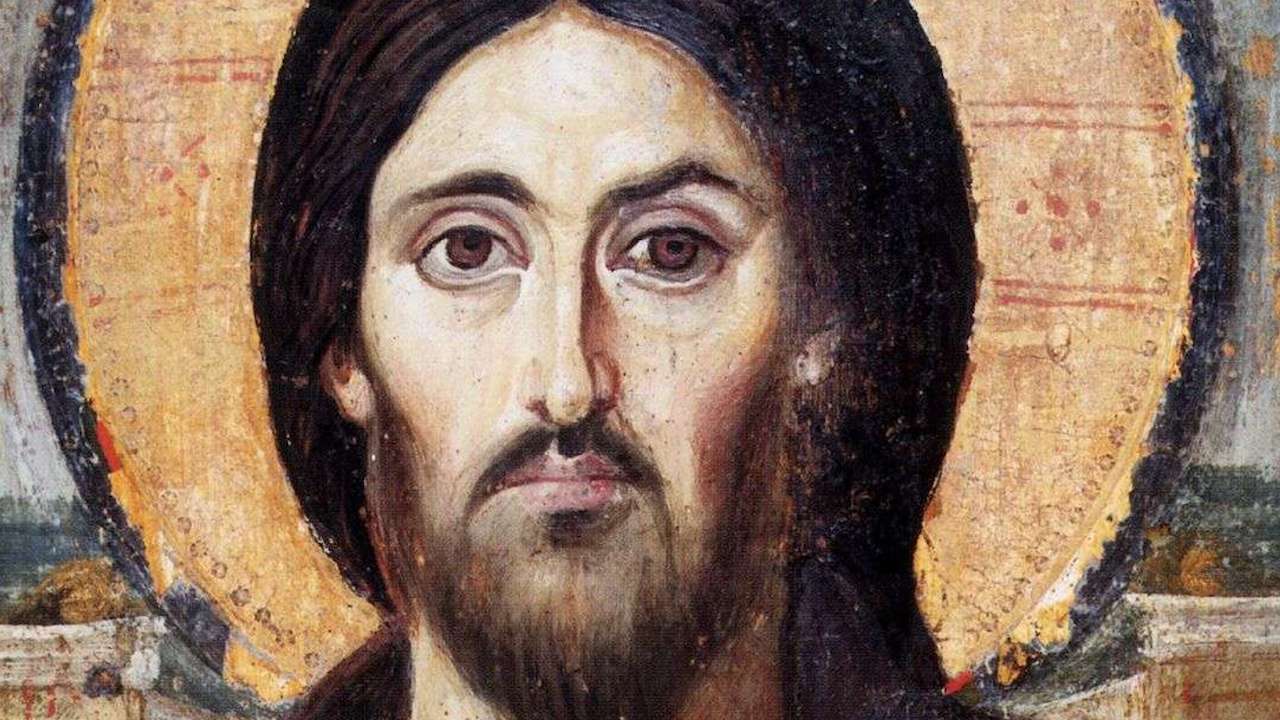6th-7th century icon of the Pantokrator (Almighty or Ruler of All) at St Catherine's Monastery in Sinai
JUST AS HE is both sacrificial victim and priest, and is both in “the form of a servant” and in “the form of God” (Phil. 2:6-7), so too is He our advocate and judge.
For neither is He kind without being severe, nor is He severe without being benevolent (cf. Rom. 11:22). For if He were only benevolent and not also severe, we would for the most part abuse His kindness (cf. Rom. 2:4). If He were only severe and not also kind, we would perhaps despair in our sins. But as it is, He is, as God, both kind and severe.
“Blessed is the one who fears the Lord” (Ps. 112:1). Whoever does not fear is not blessed.
“Rejoice in Him with trembling” (Ps. 2:11, LXX), having constantly before one’s eyes, so to speak, the possibility of falling, should God’s assistance abandon the one who is doing something praiseworthy.
“And they were very sorrowful, and began to say to Him one after another, ‘Is it I, Lord?’” (Matt. 26:22). But I think that each of the disciples knew from what Jesus had taught that human nature is changeable and prone to evil…. In our weakness we have to be afraid of all future things, we who have not yet received the wisdom of perfection which the Apostle spoke of: “For I am sure that neither death, nor life,” etc., “will be able to separate us from the love of God in Christ Jesus our Lord” (Rom. 8:38-39). They who are not yet perfect have doubts about themselves since they are capable of falling. Writing about this human weakness to the Corinthians, Paul said: “I pommel my body and subdue it, lest after preaching to others I myself should be disqualified” (1 Cor. 9:27).
“Nail my flesh with your fear, for I am fearful of Your judgments” (Ps. 119:120 LXX). Whoever is nailed is crucified. I am therefore searching for the cross and ask if perchance the cross is the fear of God. For the Savior said: “He who does not take his cross and follow me is not worthy of me” (Matt. 10:38). We have often made distinctions between fear and love, and said that the one who loves is more perfect than the one who fears, and that fear is necessary in the beginning. But when “perfect love” has come in, “it casts out fear” (1 Jn. 4:13). Since then the just person is nailed to the cross by God with fear, I ask whether the one who is crucified and nailed with fear is indeed afraid so that he will mortify his earthly members (cf. Col. 3:5); but when “perfect love” comes, he is taken down from the cross, buried, and raised from the dead that he might “walk in newness of life” (Rom. 6:4), no longer in fear, but in the love which is in Christ Jesus.
Just as He is not a “God of the dead but of the living” (Matt. 22:32; Mk. 12:27; Lk. 20:38), so too is He not Lord of lowly slaves but of those who in the beginning were in fear because of their childishness but, after being educated, entered under love into a more blessed service than they had in fear.
A son too can serve. But then fear alone is not the cause of his service but also love.
*Passage translated by Robert J. Daly in Origen: Spirit & Fire
edited by Hans Urs von Balthasar (Catholic University of America Press, 1984). Available at Eighth Day Books.










